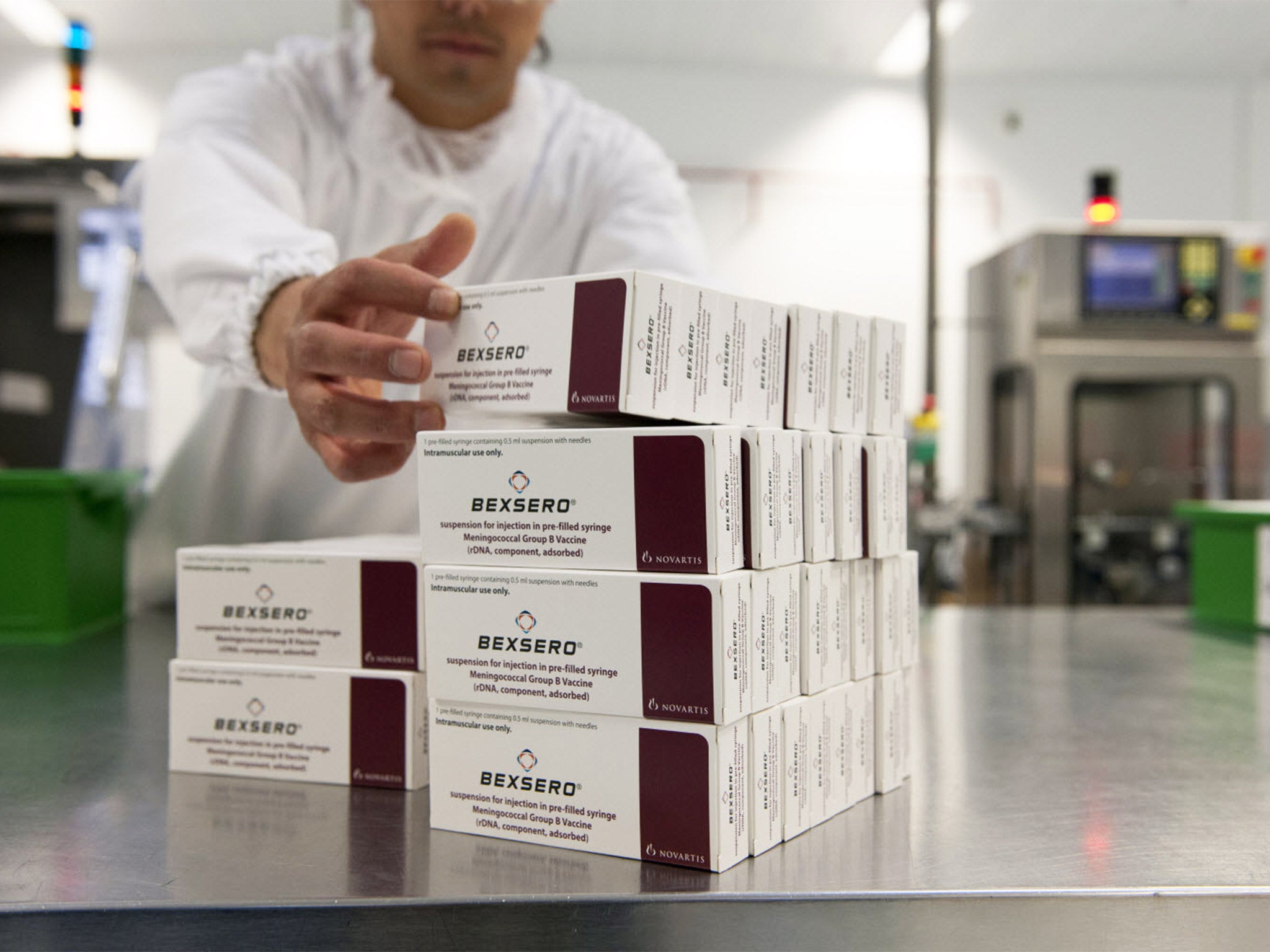Meningitis B vaccine delay 'is putting children's lives at risk'
Despite its recommendation a year ago, manufacturers GSK and the Department of Health have been unable to agree on a price

Your support helps us to tell the story
From reproductive rights to climate change to Big Tech, The Independent is on the ground when the story is developing. Whether it's investigating the financials of Elon Musk's pro-Trump PAC or producing our latest documentary, 'The A Word', which shines a light on the American women fighting for reproductive rights, we know how important it is to parse out the facts from the messaging.
At such a critical moment in US history, we need reporters on the ground. Your donation allows us to keep sending journalists to speak to both sides of the story.
The Independent is trusted by Americans across the entire political spectrum. And unlike many other quality news outlets, we choose not to lock Americans out of our reporting and analysis with paywalls. We believe quality journalism should be available to everyone, paid for by those who can afford it.
Your support makes all the difference.Campaigners have warned that delays introducing a vaccine protecting children from the deadly meningitis virus are placing children’s lives in danger.
It has been a year since an expert advisory body recommended that the Bexsero Men B vaccine should be offered to children from two months old, but price negotiations with manufacturer GSK have severely delayed the process.
Although the Department of Health said it wanted to see the vaccine introduced as soon as possible, GSK are continuing discussions over the vaccine.
As the negotiations roll on, campaigners have urgently appealed to the prime minister and health secretary to conclude talks and implement the vaccine, the BBC reported.
“One year on, we appeal that a decision is made imminently,” Dr Ian Maconichie, of the Royal College of Paediatrics and Child Health doctor, told the BBC.
The doctor continued that a decision was needed urgently “so should the vaccine be introduced, it can begin to save children's lives and spare some from severe preventable disability as soon as possible."
Although anyone can contract meningitis, which is an inflammation of the protective membranes surrounding the brain and spinal cord, babies and young children are most at risk.
There are around 1,870 cases of meningitis B every year, but improved care – and early detection – means that most children now make a full recovery.
Nevertheless the virus it is still fatal in one out of 10 cases, and roughly one in four survivors are left with long-term difficulties – such as deafness, amputation, epilepsy and learning difficulties.
Dr Maconichie’s remarks were echoed by Sue Davie, of charity Meningitis Now, who said although her organisation welcomed a decision to launch large-scale immunisation programmes for teens, they “remain deeply concerned that the introduction of the Men B vaccine continues to be held up in negotiations”.
She continued: “Surely now we will see the negotiations between the Government and vaccine producer, being concluded and the Men B vaccine introduced to save lives now and protect babies not only against MenB but MenW as well".
Additional reporting by Press Association
Join our commenting forum
Join thought-provoking conversations, follow other Independent readers and see their replies
Comments